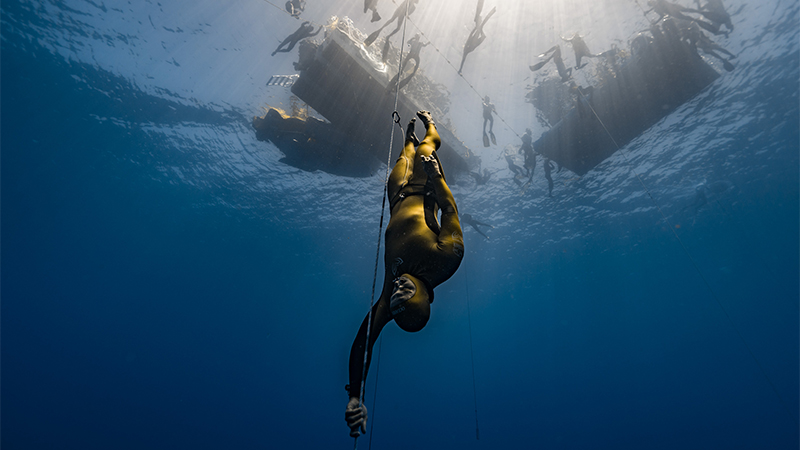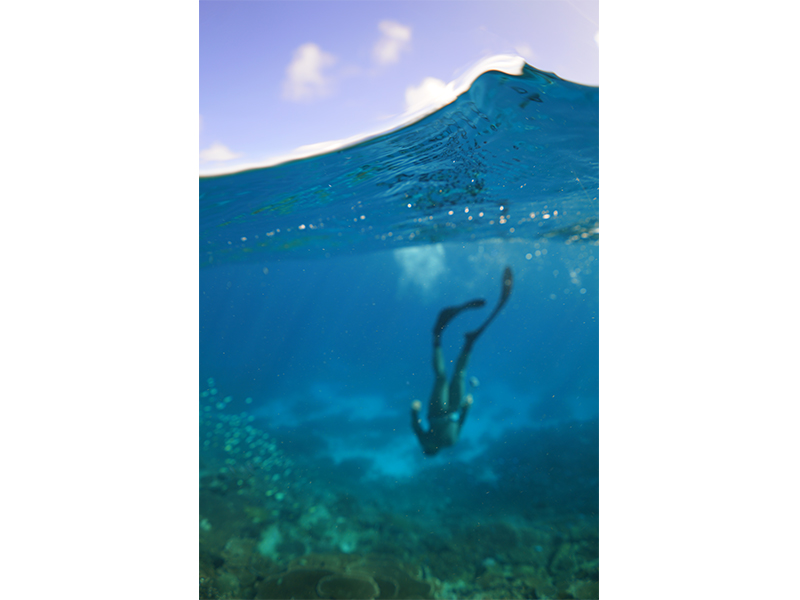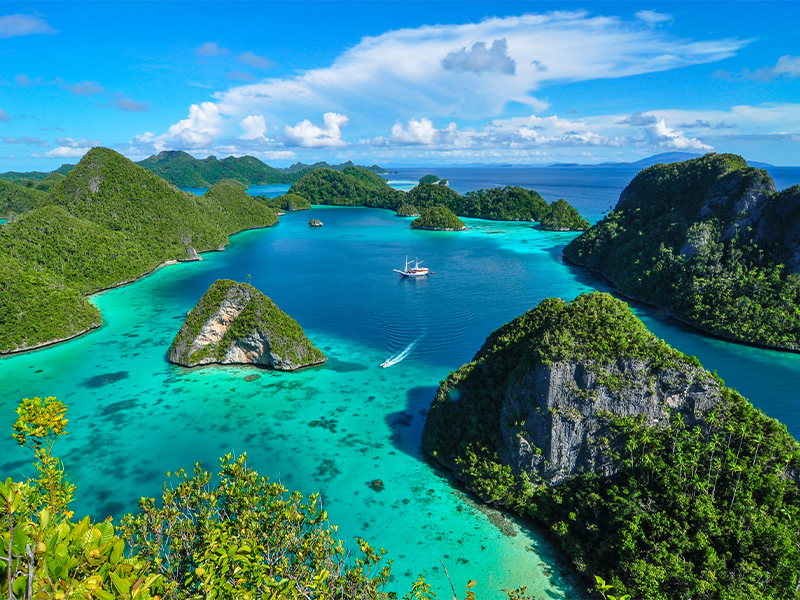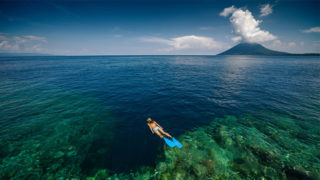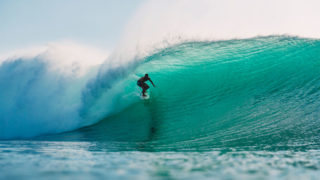Neil Armstrong talks to us about Freediving in Asia! In these uncertain times, it might just be the ideal sport. And it’s as simple as taking a breath, being able to swim, and believing in yourself.
If you’ve got these abilities, you’re ready for freediving. The silent, underwater world is for you to experience, and to go as deep as you feel comfortable with. Being able to slip into nature, with few accessories, is the main driving force behind freediving’s surge in popularity. That, and the mental and physical challenges it can provide. You can challenge yourself and you’re in control. But you just have to relay that message to your body, as it’s screaming for oxygen while you’re metres underwater. It is meditation-meets-endurance.
As the co-owner of Zen Freediving in Singapore, Michelle, says: “Freediving incorporates mindfulness and relaxation, and can be a form of stress relief, while you’re learning a new skill at the same time. When you learn to freedive, you become more comfortable in the water and enjoy the environment.”
An old pursuit
With the rise of wellness retreats, courses and apps in recent years, it’d be easy to regard freediving as a marketing gimmick – an offshoot activity promising everything you might be seeking, from mindfulness to fitness. Freediving ticks these boxes, but its roots stretch a long way back, both historically and, believe it or not, genetically.
The Bajan people, also known as the Sea Gypsies of Malaysia, can stay underwater to hunt fish for up to five minutes at a time. There are the freediving grandmas who seek sponges and shells off Jeju Island in Korea. And there’s evidence of sponge divers going back to the time of Alexander The Great, in the 4th century BC.
What’s more, the bodies of the Bajans have evolved over centuries due to the amount of time they spend in the water; this is generally around five hours per day, when they regularly dive as deep as 20 metres or more. Their spleens are said to have grown 50 percent larger than in most people. When you dive, your spleen contracts and red blood cells are released into your bloodstream. A larger spleen gives you a greater supply of red blood cells, and therefore more oxygen, allowing you to stay underwater longer.
The benefits: freedom and fitness
There’s no splashing or crashing of the waves with freediving. You slip beneath the surface and are greeted by aquatic serenity. The feeling of being weightless, and being able to move without any encumbrances and in any direction, without gravity, is like flying underwater. This is the allure.
“Freediving allows you to rethink your scale, how small you are in this universe,” says multiple world-record holder Alexey Molchanov.
On the physical side, freediving can be a gateway to a more healthy lifestyle. For one thing, your joints experience less pressure when underwater. This is an activity with no impact, unlike running, so it will help to develop muscles, and increase your endurance and vitality, and with fewer injuries.
Michelle says, “For beginners, the physical benefits would include becoming more in tune and aware of how they breathe and learning how to physically relax muscle groups on demand; you’d be surprised how many people find this difficult.”
Freediving helps strengthen your lungs through exercises to increase their oxygen capacity. And, as you learn to gently push the physical boundaries of your body, you’ll also benefit your brain.
Mastering the mind and managing stress
Compared to the physical exertion of swimming laps, freediving is akin to mental chess. It helps you understand a variety of relaxation and concentration techniques that can filter into your daily life. You’ll likely be more composed, and less stressed with everyday things. You’ll also have to face your fears, be it from simply being underwater or managing your oxygen levels. But you can do this at your own pace.
Freddie Chan, founder and head instructor of APNEA HK Freediving Academy, says, “We teach different breathing techniques during our courses, which students apply when freediving, and they can use these in everyday life. The mindset of a freediver can really help people to stay calm and relaxed in uncertain times like now.”
10 Fab Spots for Freediving in Asia & Oceania
Singapore: Pulau Jong
Hong Kong: Sharp Island
Thailand: Koh Tao and Phuket
Philippines: Coron, Palawan, Panglao, Bohol
Malaysia: Sipadan Island, Layang Layang
Indonesia: Gili Island, Lombok, Amed, Bali and Raja Ampat
Fiji: Savusavu
Hawaii: Kona
Australia: Green Island and Moreton Island, Queensland
Sri Lanka: East Coast
Also… For freediving in a manmade environment rather than the ocean, you can visit the newly opened Deep Dive Dubai, which, at over 60 metres, is the world’s deepest swimming pool.
See more in our Travel section
Don't miss out on the latest events, news and
competitions by signing up to our newsletter!
By signing up, you'll receive our weekly newsletter and offers which you can update or unsubscribe to anytime.

